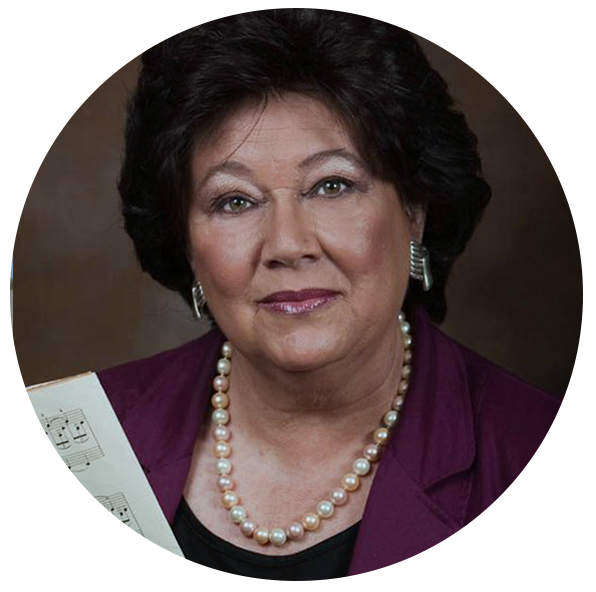World
Zaidel-Rudolph’s composition in UN concert

It’s not every day that a South African composer’s work is chosen to be performed in the International Women’s Day programme in the United Nations (UN) concert, which was the forerunner to the UN’s conference focusing on the status of women in the world.
Contemporary composer Jeanne Zaidel-Rudolph was the only South African included in the concert, and she was hand-picked to be showcased globally.
Zaidel-Rudolph has enjoyed a prolific career and is no stranger to this kind of celebration of her work. But for Zaidel-Rudolph, emeritus professor of music at the University of the Witwatersrand, these moments are a bit of a “cherry on top” of a lot of hard work.
Earlier this year, her piece, At The End of the Rainbow, composed in 1988, was selected as the key work to be performed at Global Women in Music, an International Women’s Day event on 8 March. The event was hosted by United Voices 4 Peace and the United Nations Symphony Orchestra, and conducted by Maestra Anoa Green from Baltimore.
Performed to a live audience of more than 600 people – and a considerably larger international audience who watched it through live-streaming – at the imposing BMCC Tribeca Performing Arts Center in Manhattan, New York, the work is significant in Zaidel-Rudolph’s repertoire.
It engages with the power of water in Jewish mystical thought, blending the narrative of the biblical flood with man’s spiritual odyssey from a natural state of sin to a promised state of grace, brought to resonant life with orchestral sound rich in incident and full of colour.
Characteristic of Zaidel-Rudolph’s approach, it’s replete with irregular polyrhythms, which link it to an African sound, uniquely blending threads of her Jewish values with her African context.
Born in 1948 in Pretoria and educated in South Africa, London, and Hamburg, Zaidel-Rudolph was the first woman in South Africa to obtain her doctorate in music composition.
Popularly celebrated for having been instrumental in developing South Africa’s new national anthem in 1995, she was already well-respected in international avant-garde music circles by the 1970s.
The UN concert organisers placed Zaidel-Rudolph’s work, which, at just over 16 minutes, was considerably more substantial than all the other works on the programme, just after intermission. This is a special programming trick which ensures a warmed-up freshness on the part of audiences and performers.
The founder and chairperson of United Voices 4 Peace, the Spain-based Veronica Sabbag, who was one of the core decision-makers of this concert, has, throughout her career, been privileged to connect an interest in music with experience in conflict management, defence, and security. In 2018, Zaidel-Rudolph’s work, Oratorio for Human Rights, was performed in Rome at a gala concert in honour of the 70th anniversary of the UN’s declaration of human rights. It was at this event that Sabbag met Zaidel-Rudolph and experienced her music, and the impact was unforgettable and electric.
With a mandate to celebrate the work of women composers, the UN International Women’s Day programme chose 10 of the world’s unequivocal best, also including 19th century French composer Louise Farrenc; early 20th century American composer Florence Price; Syrian film and concert music composer Suad Bushnaq; multimedia performer and composer, Masha Brodskaya, who hails from Ukraine; and Sussan Deyhim from Iran, who specialises in dance, music, and theatre, to name a few.
Unable to be in New York at the time, Zaidel-Rudolph watched the concert’s live stream during the early hours of 9 March. “I was contacted by Serbian Predrag Vasić, the orchestra’s musical director who trained the orchestra,” she says, acknowledging that the UN Symphony Orchestra isn’t a professional orchestra as such, but one comprising musically skilled UN staffers.
“My score is challenging. It has the energy of contemporary work of the late 1980s. It’s neither easy nor straightforward to perform.” The orchestra, substantially sized at between 50 and 60 performers did, in Zaidel-Rudolph’s opinion, “a masterful job” under the balanced and thoughtful baton of Maestra Green.
Born with the remarkable gifts of perfect pitch and a flawless aural memory, Zaidel-Rudolph has honed an extraordinary and intelligent music career and repertoire over several decades. She mixes her characteristic humility with candid awe regarding the magic of music.
“The experience of having my work performed by the UN again reminded me how uniquely wonderful it is that music can travel over continents and still speak well to different audiences and ensembles,” she said. “That’s the beauty of music as an international language.”